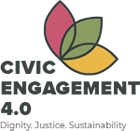Chulalongkorn University Hosts Global Citizenship Initiative
My experiences from the Thailand onsite program of APRU SDG Education for Global Citizenship 2024 Program
Stephen Maynard G. Manaoat, Student intern (MA in Environment, Development, and Sustainability)
The APRU SDG Education for Global Citizenship (APRU SDG4GC) is the first-ever program that Chulalongkorn launched under the Association for Pacific Rim Universities (APRU), one of the programs that fosters global citizenship among students from 60 universities in 20 economies across the Pacific Rim.
The program is co-designed by six core-partner universities in collaboration with the United Nations and builds knowledge of global issues and global literacy among students. The program focuses on learnings on Sustainable Development Goals (SDGs), exploring some of the world’s biggest challenges, and proposing solutions using a framework for collaborative development of social innovation.
In the 2024 program, the APRU SDG4GC conducted a hybrid program under the umbrella theme of “Shaping the Future of Health and Wellbeing”. The program was conducted from June 1, 2024, to August 30, 2024, with the onsite program held between July 20 and 28, 2024, synchronously in Thailand and Malaysia. Participants in the onsite program in Thailand included 20 students from nine APRU member universities, four lead mentors, and sessions conducted by more than 20 experts from various partner organizations.
The program explored the many dimensions of wellbeing, including social, cultural, emotional, spiritual, intellectual, mental, physical, and economic. By drawing on multiple disciplines and practices, the program inspired students to build a strong sense of global citizenship towards resilient global communities.
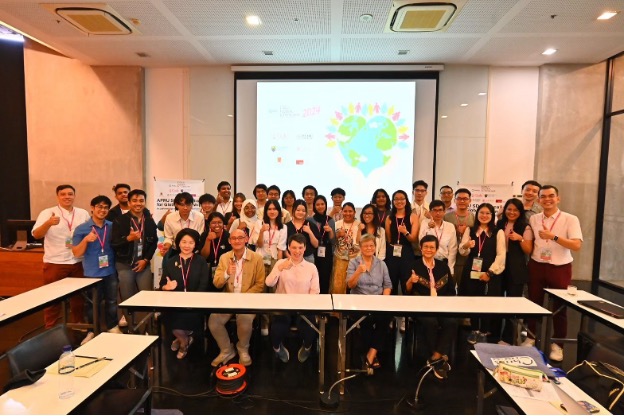
Photo 1: The team led by Chulalongkorn University welcomed the program participants in the onsite program of APRU SDG4GC 2024
Interactive Learning: Workshops and Lectures on Social Innovation and Global Health
The meticulously crafted onsite program provided comprehensive learning experience on SDGs to the participants through concrete case studies on the ground. It’s about more than just theoretical understanding and practical expertise. Led by experts in their fields, lectures and group discussions were carefully curated to ensure a deep understanding of Thailand’s rich history, SDGs and global health issues. As a result, the participants gained a solid grasp of the country’s culture, socio-political evolution, health systems and issues, among others.
The participants also gained knowledge and hands-on learning experience on dynamic workshop and seminar topics such as the Ethics of Community-Engaged Research, Critical Thinking for Global Citizenship, Global Health Insights: Mission, Challenges and a Path to Equity, Entrepreneurship and Social Innovation. Through these seminars and workshops, the participants enhanced their critical-thinking skills and gained a deeper understanding of sustainable development and the complexities of different societal issues. At the same time, participants received practical tools that empowered them to build creative ideas and develop innovative solutions. Together, through lectures and workshops, the APRU SDG4GC program offered a comprehensive learning experience for everyone.
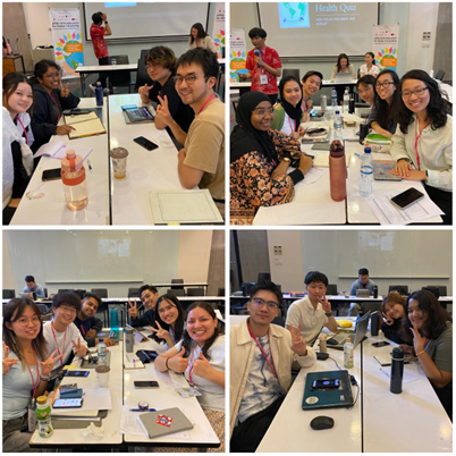
Photo 2: APRU SDG4GC participants during the group discussions in preparation for the pitching competition.
Community Immersion: Exploring Baan Krua and Klong Toey
As part of the APRU SDG4GC program’s commitment to gaining in-depth knowledge, insights and inspiration via onsite community engagement, participants had the opportunity to visit and get to know firsthand the two communities in Bangkok, the Baan Krua and Klong Toey communities. Led by Mr. Arthit Tangtatsawad of the Community Organization Development Institute (CODI) Thailand, the participants were deeply impacted by the problems faced by the Baan Krua community. This community, known as Bangkok’s largest Muslim community, is also popular as a silk-weaving community. However, the community is facing socio-economic difficulties due to limited access to stable employment, income opportunities, and modernization, which causes some threats to silk weaving. Through this community visit, the participants realized the importance of community-driven solutions. “I loved the visit to the Baan Krua community because I think it was a very good example of how we can empower a community to prosper economically while preserving their cultural and historical heritage by leveraging on their uniqueness to sustain their communities in the midst of urbanization. I also really enjoyed their food!” shared by Kuhaneetha Bai Kalaicelvan, a participant from Universiti Malaya.
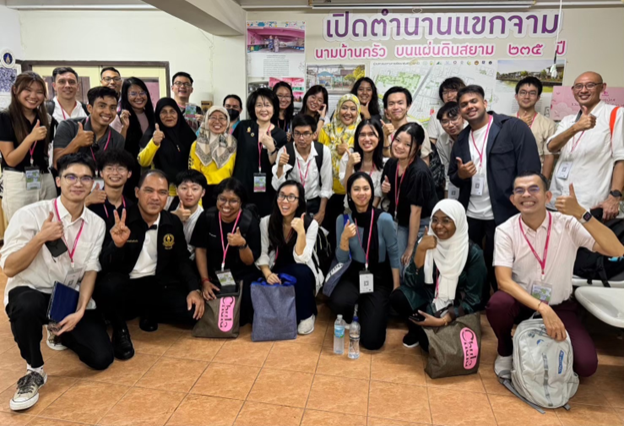
Photo 3: Mr. Arthit Tangtatsawad of CODI Thailand led the community visit in Baan Krua community on July 21, 2024, together with the APRU SDG4GC participants, mentors, and Chulalongkorn team.
Undoubtedly, the program’s most profound and eye-opening experience was visiting the Klong Toey community, the largest and most well-known slum in Bangkok. The visit on July 22, 2024, provided the participants with a firsthand understanding of the challenges faced by the community. They witnessed the current situation, heard stories from community leaders, and learned about the challenges and problems encountered by the people living in Klong Toey. This visit was a powerful reminder of the importance of community engagement in addressing complex societal issues, leaving a lasting impact on the participants. Jingyi Jiang, a participant from Fudan University, said, “This is my first time in a slum. The visit was eye-opening and deeply moving. I realized the stark contrast between the living conditions in slums and the billboards right behind. Meanwhile, the resilience of the people living in such difficult conditions stood out to me. This experience has reinforced the importance of addressing inequality and ensuring everyone can access basic necessities and opportunities for a better life. The APRU SDG4GC allowed me to engage with complex social issues in the real world. It broadened my understanding of urban challenges, particularly in underdeveloped areas, and deepened my commitment to contributing to positive social change. This program has also enhanced my problem-solving skills and the ability to adapt to different environments and circumstances.”
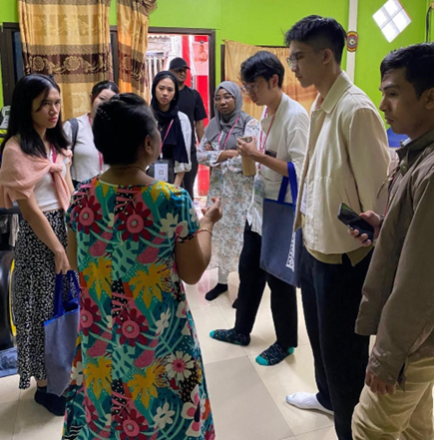
Photo 4:A community leader from the Klong Toey community explaining the challenges and issues faced by the people to the program participants.
Following the community visit, the participants had the privilege of meeting Madam Prateep Ungsongtham Hata, Founder and Secretary-General of Duang Prateep Foundation (DPF). Kru Prateep established the DPF using USD 20,000 award money after winning the prestigious Ramon Magsaysay Award in 1987. Some of the organization’s notable and life-changing projects in the Klong Toey community include scholarship projects for children, youth leader development projects, senior citizen projects, slum playground projects, DPF Health Center against drugs, and new life projects for boys and girls. The organization is committed to improving the underprivileged educational standards and living conditions. This unique experience provided the program participants with a deeper understanding of the harsh realities of urban poverty in Bangkok, particularly in the Klong Toey community, and the grassroots efforts via multi-stakeholder engagements, in place to address these social urban issues. Kru Prateep’s insights and experiences were invaluable in helping the participants develop a more comprehensive understanding of societal problems and potential solutions.
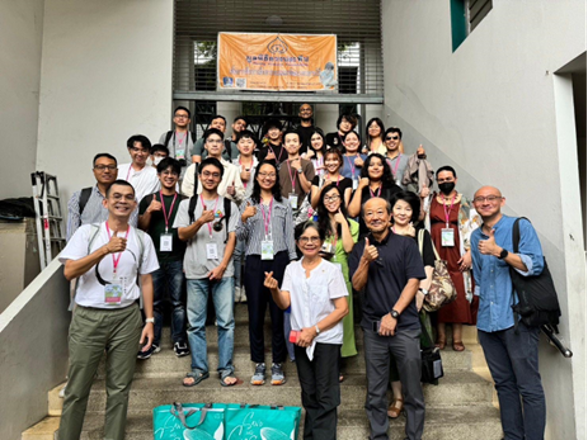
Photo 5: Participants visited the Duang Prateep Foundation, led by Madam Prateep Ungsongtham Hata, a non-profit charitable organization for children and the underprivileged of the Klong Toey community.
UN Seminar on Sustainable Energy Access
On July 24, 2024, the participants had the opportunity to visit and attend a UN Global seminar – “SDG for Global Citizenship: A Global Workshop on Ensuring Access to Sustainable, Clean, and Modern Energy”, organized in collaboration with United Nations Economic and Social Commission for Asia and the Pacific (UN ESCAP) at the United Nations Conference Center, Bangkok. This global seminar on youth empowerment and green energy transition explored how green energy tackles issues of climate change. The seminar was attended by the Professor Wilert Puriwat, President of Chulalongkorn University, Associate Professor Palanee Ammaranond, Acting Vice President, Mr. Ruhimat Soerakoesoemah, Head of the Subregional Office for Southeast Asia at the UN ESCAP, and Mr. David Guillermo Quimbayo, Program Officer for Networks and Student Programs at APRU. The program highlighted the importance of innovative solutions and collaborative efforts in promoting sustainable energy transition at local, regional and global levels. During the seminar, the panelists discussed the importance of cross-sector partnerships, technological innovations, and cultivating a global citizenship mindset that may lead to a meaningful impact. Through this seminar, the participants, as key players, were engaged in a high-level conversation about sustainable energy among the experts and professionals. The UN seminar may inspire the participants to act and encourage others in their home countries to fight against climate change, reinforcing their sense of responsibility and motivation.
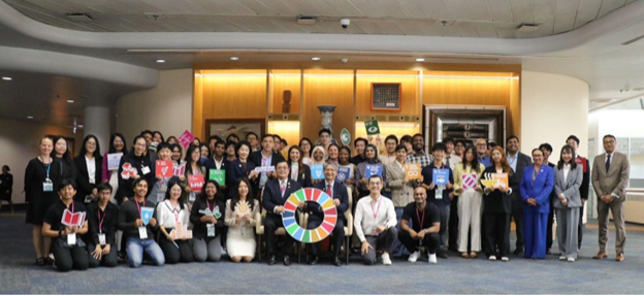
The discussions on Southeast Asia’s different opportunities and challenges in promoting sustainable energy transition provided the participants with a clear understanding of the importance of collaborative efforts. “My first visit to the UN was an incredible and inspiring experience. Witnessing the collaborative efforts of different UN bodies to improve the world was humbling and inspiring. This visit further fueled my aspiration to work with the UNDP to aid developing countries, particularly my home country, Tanzania. Learning about the UNDP’s work in various ASEAN countries inspired me to redouble my efforts towards contributing to my country’s development“, said Munnawara Gharib Saleh of Universiti Malaya.
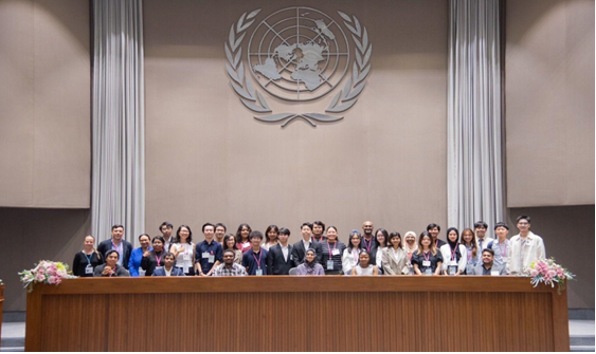
Photo 7: Participants during their visit to the United Nations Conference Center, Bangkok.
Fostering Global Citizens: Reflections on Learning and Engagement in Bangkok
By combining academic knowledge and actual community engagement, the program highlighted the importance of education in nurturing a fresh cohort of global citizens dedicated to sustainable development. Through lectures, workshops, seminars, group discussions, and community visits, participants actively engaged and gained the ability to contribute to the SDG’s accomplishments. Among the transformative sessions was the reflection at the Mercy Center. Abhishet Varama, a student from Chulalongkorn University, once said, “Throughout our visit to the Mercy Center, I realized that people are very supportive of others. It surprised me because it taught me that sometimes you don’t need many resources but can still be a support system in another person’s life. Interacting with the people at the Mercy Center helped me realize the many societal gaps we must address. Nonetheless, people at the center never lost hope; instead, they work daily to impact the people around them positively. The entire experience was overwhelming, and I believe everyone should visit such a community at least once. It will change your perception of things around you as it did to me.” Ziwei Liu, a participant from Universiti Malaya, highlighted the essence of international collaboration and the positive influence of social media. “I witnessed a feat of international philanthropy. People from all over the world contribute to these children. Everyone can be a voice for themselves and others, and through social media, we can all be leaders of the masses. Hopeful, bright, reflective. Even the greatest difficulties can be solved through hard work.”
The onsite program in Thailand ended with a final reflection session led by Miss Elodie Jacquet, one of the mentors from Simon Fraser University. This session allowed all the participants to reflect and process what they have seen, felt, heard and learned from the past few days. Nang Sam Si Phong of The Chinese University of Hong Kong expressed, “I did not expect to cry during the final reflection session. Still, as I reflected on what I saw in the past days during the program, especially during the community visits, all the emotions just hit me. It was an excellent session to reflect on all the learnings and takeaways. I could vividly see the underprivileged people struggling for their lives while living as positively as possible, and how organizations like CODI, Duang Prateep Foundation and people themselves are helping to develop the environment and the community, inspired me a lot and this motivated me to try harder to improve the health of the people in the underprivileged community.” This personal growth and transformation experienced by the participants during the program will continue to enlighten and inspire them in their future endeavours.
The final reflection session was a powerful way to conclude the onsite journey in Thailand. The program provided the students with a platform to reflect and share their thoughts on how this onsite experience changed their views and understanding of global challenges and to think of sustainable solutions. As the participants and mentors depart from Bangkok, their invaluable experiences and learnings will undoubtedly shape their future efforts in promoting sustainability and global citizenship, empowering them to make a difference. As Yip Wing Tsun, a Chinese University of Hong Kong participant, said, “I didn’t expect to learn much from the program, but it was much more fruitful than I could imagine. The most prominent part is that I befriended people from many countries. The overall experience was very positive.” This emphasis on the future impact of the program will leave the audience feeling hopeful and optimistic about the participants’ future contributions.
SDG 3: Good Health and Well-being
SDG 4: Quality Education
SDG 7: Affordable and Clean Energy
SDG 11: Sustainable Cities and Communities
SDG 13: Climate Action
SDG 17: Partnerships for the Goals
